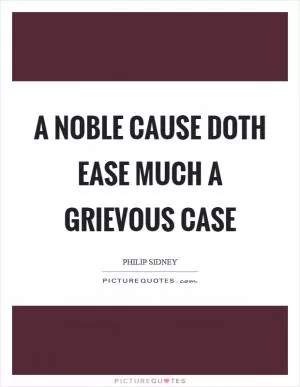I am no herald to inquire of men's pedigrees; it sufficeth me if I know their virtues

I am no herald to inquire of men's pedigrees; it sufficeth me if I know their virtues
Sir Philip Sidney, a prominent figure in the Elizabethan era, was known for his chivalrous nature and noble character. He was a man of great virtue and integrity, and his actions spoke louder than his words. In his famous work, "The Defence of Poesy," Sidney emphasized the importance of virtues over pedigrees, stating that he was not concerned with a person's lineage, but rather with their character and moral values.Sidney believed that true greatness was not determined by one's ancestry or social status, but by their virtues and actions. He valued qualities such as courage, honesty, loyalty, and compassion above all else. To him, these virtues were the true measure of a person's worth and should be celebrated and admired.
In a society where lineage and pedigree were often seen as markers of status and importance, Sidney's words were revolutionary. He challenged the traditional notions of hierarchy and privilege, and instead championed the idea that a person's worth should be judged by their deeds and character.
Sidney's own life was a testament to his belief in the power of virtues. He was a brave soldier, a talented poet, and a devoted friend. His actions on and off the battlefield reflected his commitment to honor, integrity, and justice. He was a man of principle who stood up for what he believed in, even in the face of adversity.












 Friendship Quotes
Friendship Quotes Love Quotes
Love Quotes Life Quotes
Life Quotes Funny Quotes
Funny Quotes Motivational Quotes
Motivational Quotes Inspirational Quotes
Inspirational Quotes